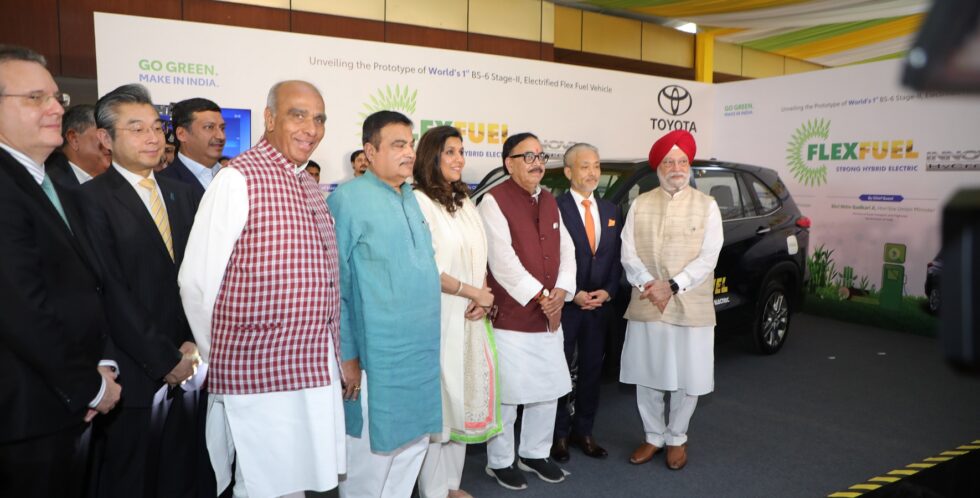
KOCHI:
Toyota Kirloskar Motor (TKM) sets yet another milestone in the realm of sustainable mobility by unveiling a Prototype of the World’s First BS 6 (Stage II) Electrified Flex Fuel Vehicle. As a part of its unwavering commitment to India’s national objectives, TKM has been actively pursuing technologies that are aligned with the unique energy landscape of the country and can help rapidly displace fossil fuel consumption at large scale as well as achieving low carbon emissions on a comprehensive Well-to-Wheel (W2W) basis. This milestone reaffirms and demonstrates TKM’s dedication and ongoing endeavours to introduce advanced & green mobility solutions in line with the nation’s key priorities.
India is the fastest growing large economy, and India’s fossil fuel consumption along with crude oil import is also rising rapidly. Due to a large increase in mobility needs, the transport sector, which currently accounts for about 50% of oil demand, will be the most significant contributor to this. As per estimates, the transport sector energy consumption in India is expected to double to 200 Mtoe (Million Tonnes of Oil Equivalent) of energy in 2030. The higher fossil fuel consumption is also bound to result in larger carbon emissions. Therefore, it is imperative for us to rapidly shift away from fossil fuels with utmost urgency.
India is well endowed with renewable energy, surplus sugar, food grains, and biomass which offers huge possibilities for a transition to a cleaner energy future, which is also indigenous. The abundantly available sugarcane, excess food grains, along with huge biomass waste can be used to produce ethanol that can substitute a significant amount of petrol used by vehicles in the shortest possible time.
Notably, in the recent past, the Ethanol mix (in petrol) in India has gone up from 1.53% in 2013-14 to 11.5% in March 2023, which has helped reduce the oil import bill by Rs. 41,500 crores in the last eight years. Further, in 2020-21, ethanol blending enabled a reduction of 26 million barrels of petrol, thereby resulting in savings of Rs. 10,000 crores. With the impending implementation of E20 (20% ethanol blending in petrol) by April 2025, India is expected to save Rs. 35,000 crores annually in its oil import bill and reduce GHG Emission by 21 million metric tonnes. E20 fuel will also reduce PM2.5 emissions by up to 14% as compared to petrol.




